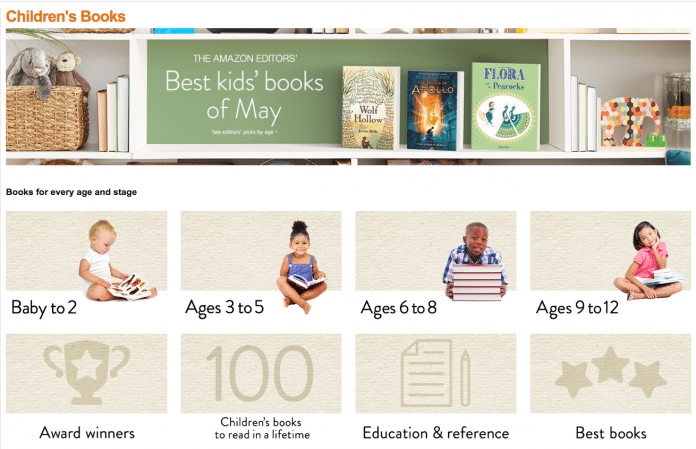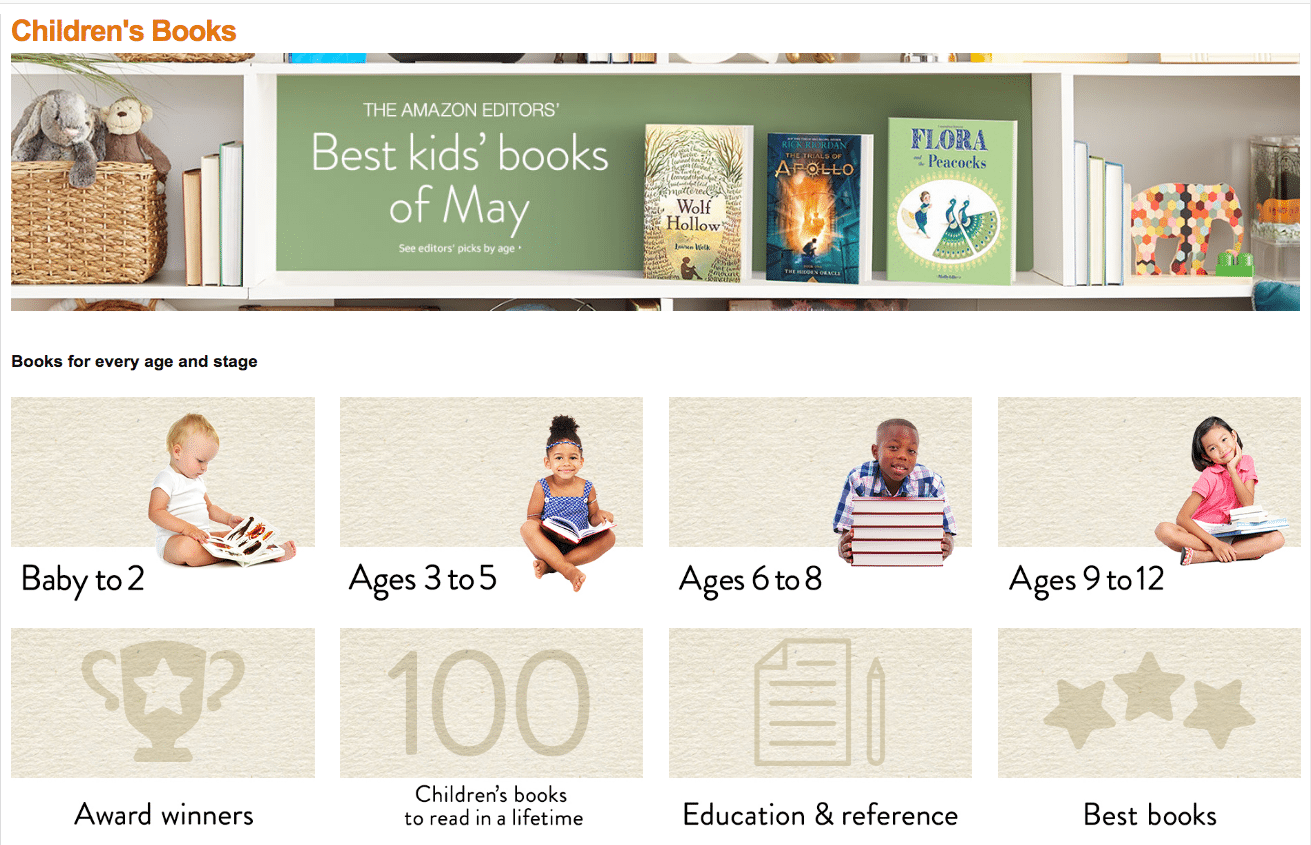
With the summer school holiday in a full swing, you may wonder how to choose books for kids that will engage them and encourage them to read till the end. There is an easy solution, which we will reveal in the next paragraph, but keep reading further because there is much more to it.
A tasted and easy way to choose books for kids is to explore Amazon’s reading lists for which the company’s editors have selected the most popular reads for different age groups and from different genres.
You most probably know how hard it can be to find age-appropriate books. Popular books can sweep through schools and peer groups and you may find your kids dipping into something you’re not sure they’re ready for. So, your kids may read something you’ve never heard of, or something they insist “everybody is reading.”
The publisher’s recommended age isn’t always helpful. It may reflect marketing decisions more than child-development considerations. There’s a wide range of what kids are ready for at different ages; some 8-year-olds love scary stories and can take lots of gore, while others may be disturbed to read about tension, conflict, or loss of any kind.
The better way to choose books for kids starts with understanding what content isn’t only age-appropriate but also developmentally appropriate for your child. After that, you can determine what’s OK based on the things that matter to you, like your kid’s interests and individual temperament. What’s terrifying to one may be fun and action-packed for another. You can also make it easier and more efficient by teaching your children to listen to audiobooks. Right now the 30-day trial is free of charge and you can cancel it without obligations, while if you opt for 3 months membership at Audible.com, you can get up to 66% discount.
Here are some things to consider when you’re choosing books for your kids that should be the right ones:
What age is the book aimed at? Sometimes a book’s target age group is obvious but broad. Many younger skilled readers aren’t emotionally ready for some of the edgier stories in today’s chapter books, with tales of homelessness, relatives in jail, parental death or abandonment, cancer, mental illness, natural disasters, and more. And some series get more mature as they go along. For example, the age ratings for the seven Harry Potter books vary from 8 and up for series opener Harry Potter and the Sorcerer’s Stone to 12 and up for final volume Harry Potter and the Deathly Hallows. Ultimately, you’ll need to make a judgment call based on what you think is right for your kid, taking into account many of the factors described in more detail below.
Quality. Yes, quality can be subjective — and certainly your kids will like stuff you don’t — but look for benchmarks. Is it well written, well paced, and well plotted? Are the characters well rounded, or do they rely on one-dimensional stereotypes? Does the book engage kids on a deep level and make them think? Does it open them up to new words and new ideas?
Educational value. It’s perfectly fine to choose books solely for their entertainment value, but kids can take away a lot from stories with richly detailed settings. Whether it’s Greek and Roman mythology in the Percy Jackson series or farm life in Sarah, Plain and Tall, kids learn more than you think when they’re captivated by a good story.
Messages and role models. Media messages really do have an impact on kids, so it makes sense to choose books that reflect the kinds of ideals you’d like your children to absorb. Younger kids are more literal and enjoy the direct messages found in picture books — for example, lessons about friendship, sharing, and empathy. But when older kids dive into middle grade fiction, they’ll find messages that are more nuanced. These provide an opportunity for you to discuss your own views and values. Also, consider the characters. Are they people you’d like your kids to emulate? Are there consequences for their behavior? Are adults present and responsible? Are the characters realistic and relatable or shallow and stereotypical?




































